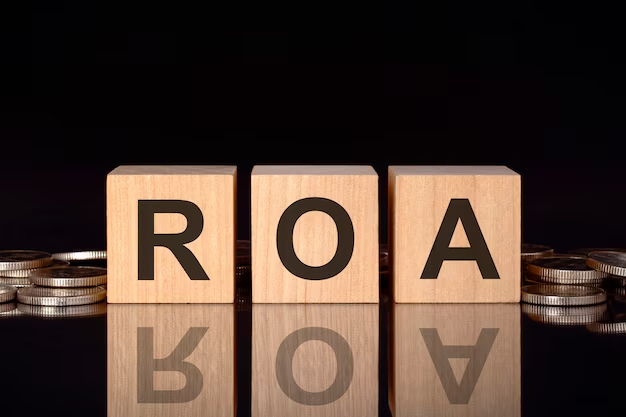Your Guide to Are Roth Ira Dividends Taxable
What You Get:
Free Guide
Free, helpful information about Dividend FAQ and related Are Roth Ira Dividends Taxable topics.
Helpful Information
Get clear and easy-to-understand details about Are Roth Ira Dividends Taxable topics and resources.
Personalized Offers
Answer a few optional questions to receive offers or information related to Dividend FAQ. The survey is optional and not required to access your free guide.
Are Roth IRA Dividends Taxable? Understanding the Nuances of Your Investment
Saving for retirement effectively requires an understanding of various investment vehicles and how they work. One such popular option is the Roth IRA, which offers tax advantages and flexibility. But as you navigate these waters, a critical question arises: Are dividends from a Roth IRA taxable? This comprehensive guide delves into this topic, unraveling the complexities and clarifying related aspects to empower your financial knowledge.
🏦 What is a Roth IRA?
A Roth IRA is a type of retirement account that allows individuals to contribute post-tax dollars, meaning taxes are paid on the money before it goes into the account. The key benefit? Withdrawals during retirement, including earnings and dividends, can be tax-free if certain conditions are met.
The Basics of Roth IRA
- Contributions: Made with post-tax income.
- Withdrawals: Generally tax-free if certain conditions are satisfied.
- Eligibility: Based on income levels; high earners may face phase-out limits.
🤔 Are Roth IRA Dividends Taxable?
The enticing aspect of a Roth IRA, when managed correctly, is that dividends earned within the account are not taxable. Here's why:
- Tax-Free Growth: Earnings, including dividends, grow tax-free within the account.
- Qualified Distributions: If you're over 59½ and the account has been open for at least five years, you can withdraw money, including dividends, tax-free.
However, there are nuances to be aware of regarding non-qualified distributions.
Non-Qualified Distributions
Taking money out of a Roth IRA before meeting the specified conditions can lead to taxes and penalties:
- Early Withdrawals: Generally, it incurs a 10% penalty unless exceptions apply.
- Five-Year Rule: The account must be open for at least five years for earnings withdrawals to qualify as tax-free.
💡 Key Conditions for Tax-Free Dividends
To enjoy tax-free dividends from your Roth IRA, adhere to these essential conditions:
- Age Requirement: Be 59½ or older.
- Five-Year Rule: The account must be open for five years.
- Qualifying Events: Disability, first-time home purchase (up to $10,000), or other specific exemptions.
📈 Benefits of Reinvesting Dividends in a Roth IRA
Choosing to reinvest dividends within a Roth IRA can compound your benefits due to the tax-free growth environment.
Advantages of Reinvestment
- Compounding Growth: Reinvested dividends contribute to the account’s growth, compounding over time without the drag of taxes.
- Maximize Returns: The reinvestment strategy can significantly increase the retirement portfolio's value.
💌 Related Concepts: Traditional IRA vs. Roth IRA
Choosing between a Traditional IRA and a Roth IRA depends on tax considerations and personal financial situations:
- Traditional IRA: Contributions may be tax-deductible; taxes are paid on withdrawals.
- Roth IRA: Contributions are not tax-deductible; withdrawals (including dividends) are tax-free if qualified.
📋 Summary: Key Takeaways on Roth IRA Dividends
To navigate your Roth IRA effectively, remember these vital points:
- Tax Benefit: Dividends in a Roth IRA can grow tax-free under specific conditions.
- Withdrawal Rules: Understanding age and account longevity requirements is crucial for tax-free dividends.
- Strategic Reinvestment: Consider reinvesting dividends to maximize your retirement savings through compounding.
📌 Practical Tips for Managing Your Roth IRA
To make the most of your Roth IRA, consider these proactive steps:
- Regular Contributions: Max out contributions yearly if possible to capitalize on compounding.
- Long-Term Outlook: Keep an eye on age and the five-year rule to maximize tax-free benefits.
- Consult Financial Advisors: Professional guidance can tailor strategies to your unique situation.
🌱 Conclusion: Empowering Your Retirement Strategy
Understanding whether Roth IRA dividends are taxable is pivotal for optimizing your retirement strategy. By leveraging the tax-advantaged nature of this account, you can enhance your financial future effectively. As with any financial decision, careful planning and professional advice will help ensure your retirement savings maximize their potential, allowing you to enjoy the fruits of your labor without unnecessary tax burdens.
Remember, with the knowledge and strategic application of your Roth IRA's potential, you're not just preparing for retirement—you're empowering your future self with the gift of financial flexibility and security.
What You Get:
Free Dividend FAQ Guide
Free, helpful information about Are Roth Ira Dividends Taxable and related resources.

Helpful Information
Get clear, easy-to-understand details about Are Roth Ira Dividends Taxable topics.

Optional Personalized Offers
Answer a few optional questions to see offers or information related to Dividend FAQ. Participation is not required to get your free guide.


